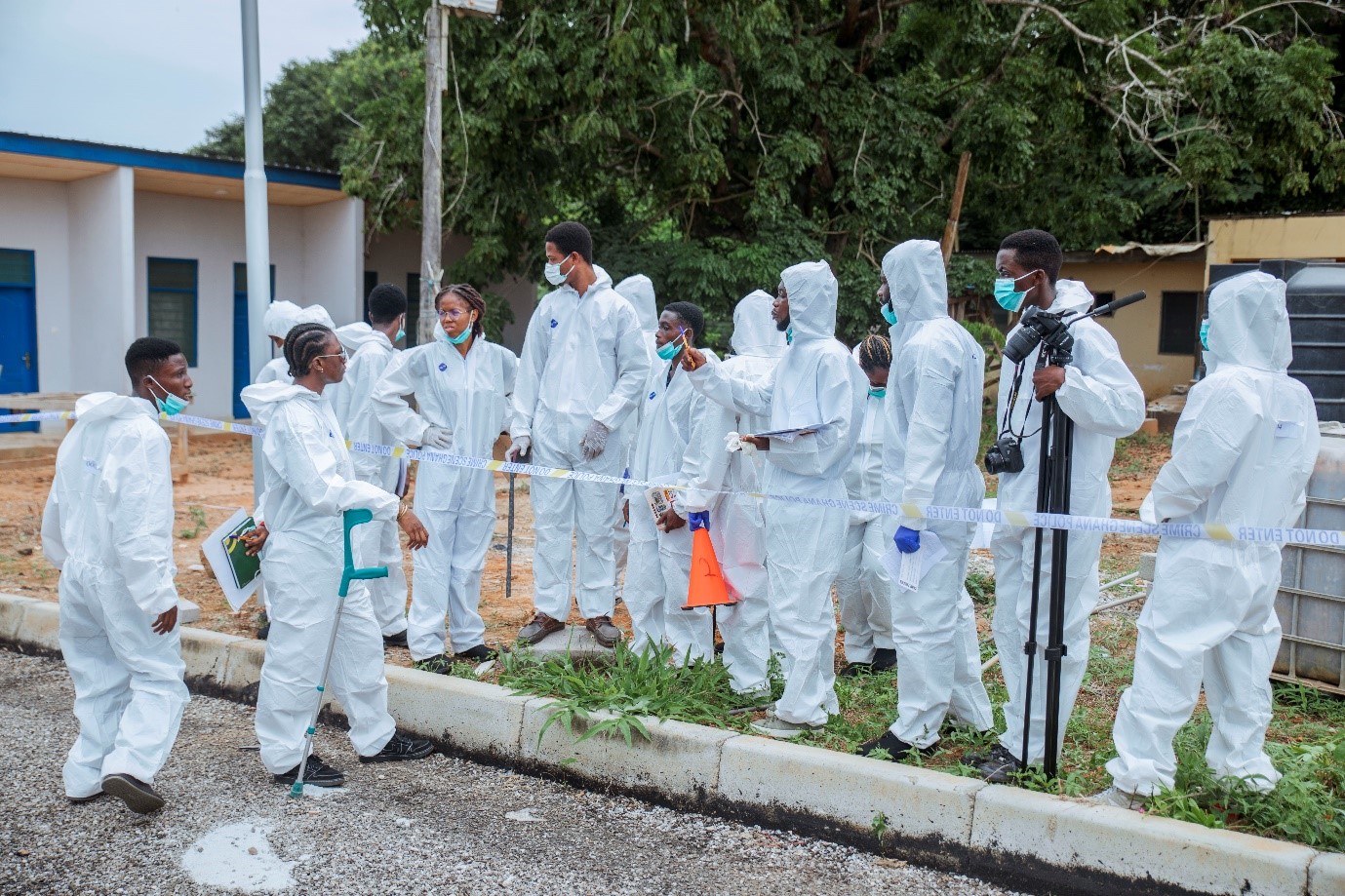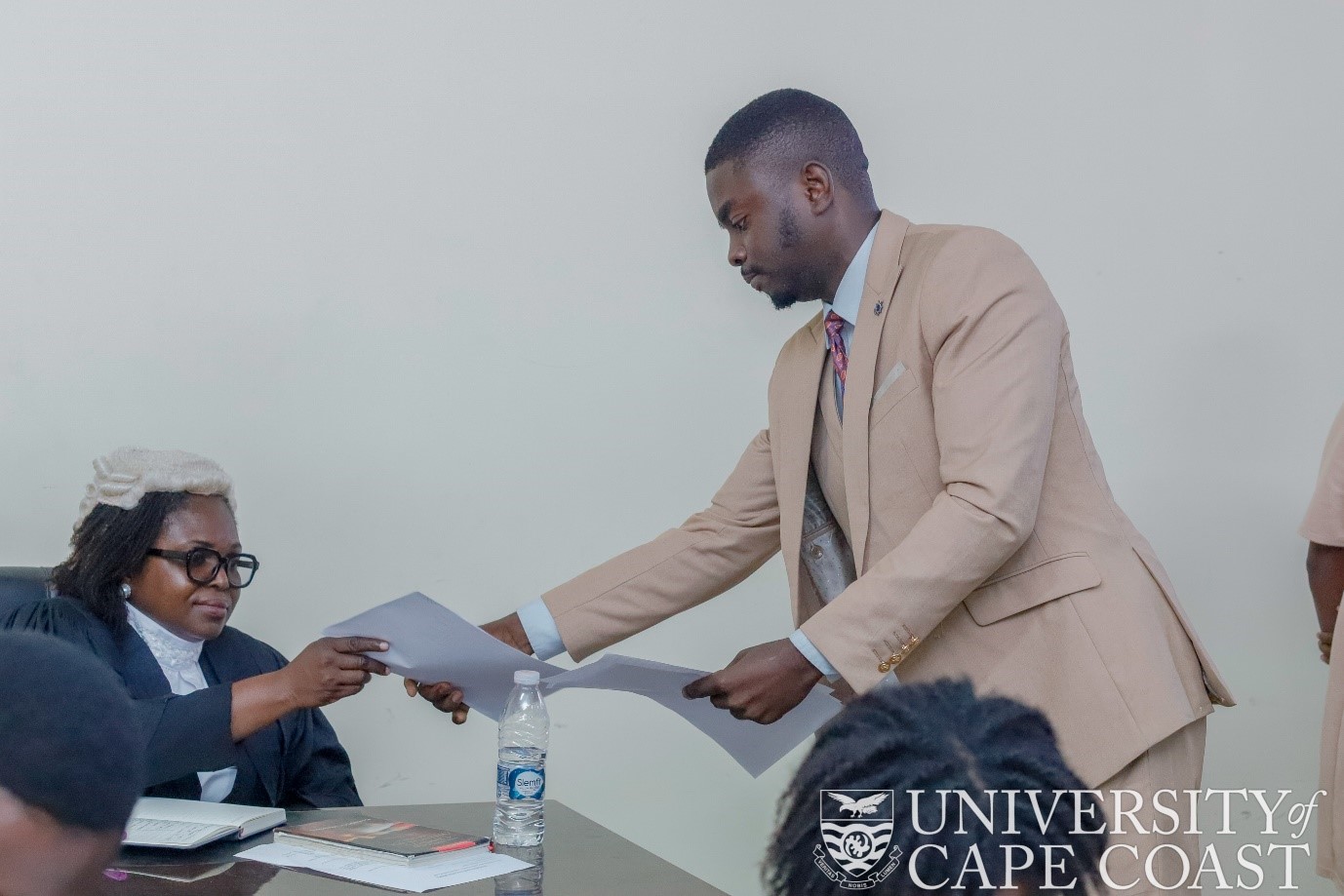As part of an annual practical curriculum assessment in the course, FSC 316A: Crime Scene Investigation, the Department of Forensic Sciences has conducted a mock crime scene exercise for the students in Level 300.
This activity was aimed at providing hands-on experiences in forensic techniques, as well as crime scene processing and management skills.
Scenario Setup
Two crime scenes were simulated in a cordoned off area behind the School of Biological Sciences at the University of Cape Coast.
The students at the crime scene
The first scenario depicted a suspected sexual assault case in a yard with realistic props and the second was an arson-related scenario.
The prime objective was for the students to recognise, identify evidence, document the scene and apply forensic analytic methods.
These annual mock crime scene investigations provided the students with indispensable practical experiences and opportunities to apply theoretical knowledge to real-world scenarios, enhancing their skills in evidence collection, forensic analysis, critical thinking, and deductive reasoning. The activity emphasizes the importance of conscientious attention to detail and the interdisciplinary nature of forensic science.
Student presenting evidence to a judge in the moot court
Results from the processing of the crime scene were used in another related course; FSC 308: Expert Witness Testimony where the students analysed evidence on the simulated cases and their opinions on the matter presented at a moot court, where the students argued their cases in front of a judge.
The lecturers and coordinators of the courses assessed the students on the practical components of the courses.
Source: Documentation and Information Section-UCC



